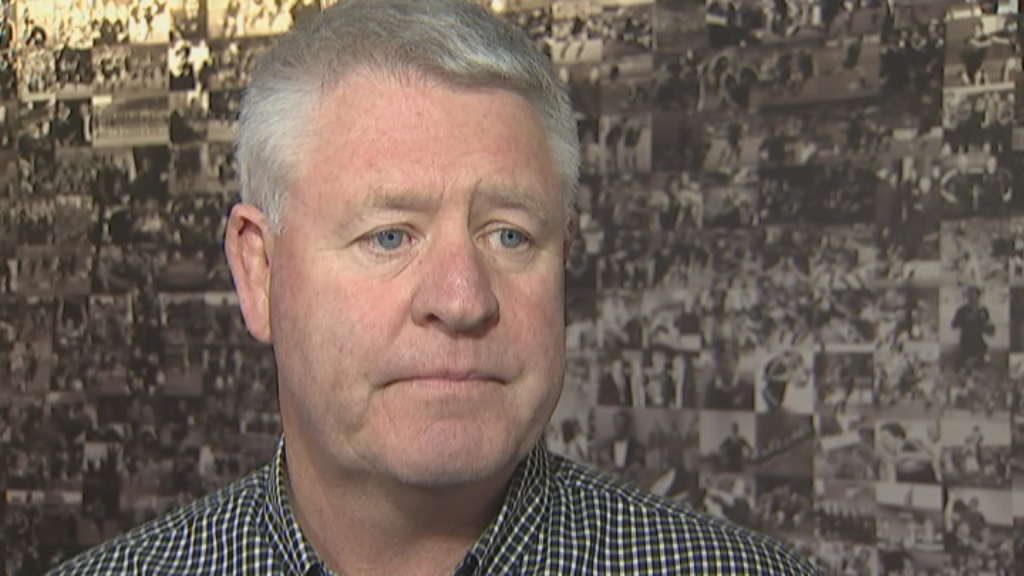The Tew Era
0New Zealand Rugby supremo Steve Tew has announced he’ll step down as CEO later this year, ending a stint in rugby administration longer than the professional game itself. Tew was the main man at the Canterbury union when the game turned pro, and became the Crusaders first CEO until moving onto the national body in 2001, and moved into the top job following Chris Moller’s departure after the 2007 World Cup failure.
But before then Tew had already become a controversial figure; his role in the ‘clean stadia’ debacle saw New Zealand counted out of co-hosting rights of the 2003 edition of the showpiece, and his appointment was derided in some quarters about the ongoing “Canterbrisation” of the national game.
Tew’s tenure has had some incredible successes. The hosting of the 2011 RWC and the “Stadium of Four Million” concept is the most notable, along with the All Blacks winning that tournament and then defending it in the UK four years later. There’s also two Sevens World Cups and five World Series crowns, two Women’s World Cups, two Women’s Sevens World Cups and four Womens World Series titles, and the continued dominance of Super Rugby and the Tri-Nations-cum-Rugby Championship.
The All Blacks have been the world’s number one side for most of that time, despite the constant lure of money overseas and turnover of players. And the quasi-central contracting model has meant New Zealand has avoided the “club vs country” battle that plagues the northern hemisphere (and now by extension South Africa and Argentina), particularly in England and France.
The growth of the Women’s game cannot be ignored either.
Tew has leveraged that success to off the field as well. Few recall that a decade ago NZ Rugby turned in a $16million loss on the back of the Global Financial Crisis, and the lucrative deals with Adidas and AIG have ensured the finances are in better shape than we he came in, and he oversaw the introduction of private investors into the ownership of the five Super Rugby franchises.
That AIG deal, and with it the conglomerates logo emblazoned on the All Black jersey, remains the most polarising move of his stewardship. Some saw its as a necessary step to keep New Zealand at the top of the game, others derided it as a sell-out to the history of the jersey – even if some of those same people saw no problem with the similar Steinlager branding of a generation ago.
His other area of controversy is the perception that having worn red and black has been a prerequisite for the main coaching jobs. Of the franchises only the Chiefs haven’t had a former Crusader in the head chair, and those of us in capital haven’t yet forgotten the period known as the “Hammett error”. And while not his fault, he has been party to the failed expansions of Super Rugby.
But go beneath the surface and there’s a raft of issues that Tew never successfully grappled with, and that his successor will have to.
Crowds attending games have fallen dramatically and it’s no longer a given that an All Blacks Test match will even sellout anymore, let alone a Super Rugby game. The Mens Sevens haven’t won a Series title in five seasons and there’s ample evidence that even non-rugby powerhouses haven’t just caught us in the shortened-form, but gone past us.
The further you get from the top of the table, the worse things become. The Mitre10 Cup has continued to decline in the public’s conscious, and you can make a good argument that Tew’s tenure has ultimately treated it as nothing more than a Super Rugby feeder.
But below that is the damning indictment that the game at the grassroots level the game is in real trouble. Clubs everywhere are struggling, both for money and keeping players in the game. Junior numbers remain strong, but the fall-off from there into school rugby and then again once they leave secondary education is precipitous. And even the school game has become about the elites; it’s a sad state of affairs when the National 1st XV title can only be realistically won by about a dozen schools across the country and as we saw with the St Kentigern’s saga NZR was rather mute when it came to criticising those who do much of the heavy lifting on developing their future talent for them.
Ultimately Tew’s legacy will be maximising those commercial opportunities, but also the neglect of rugby’s base. Who is successor is and how they go about addressing that will be critical to ensuring that the National Game remains that.
Follow Scott on Twitter

